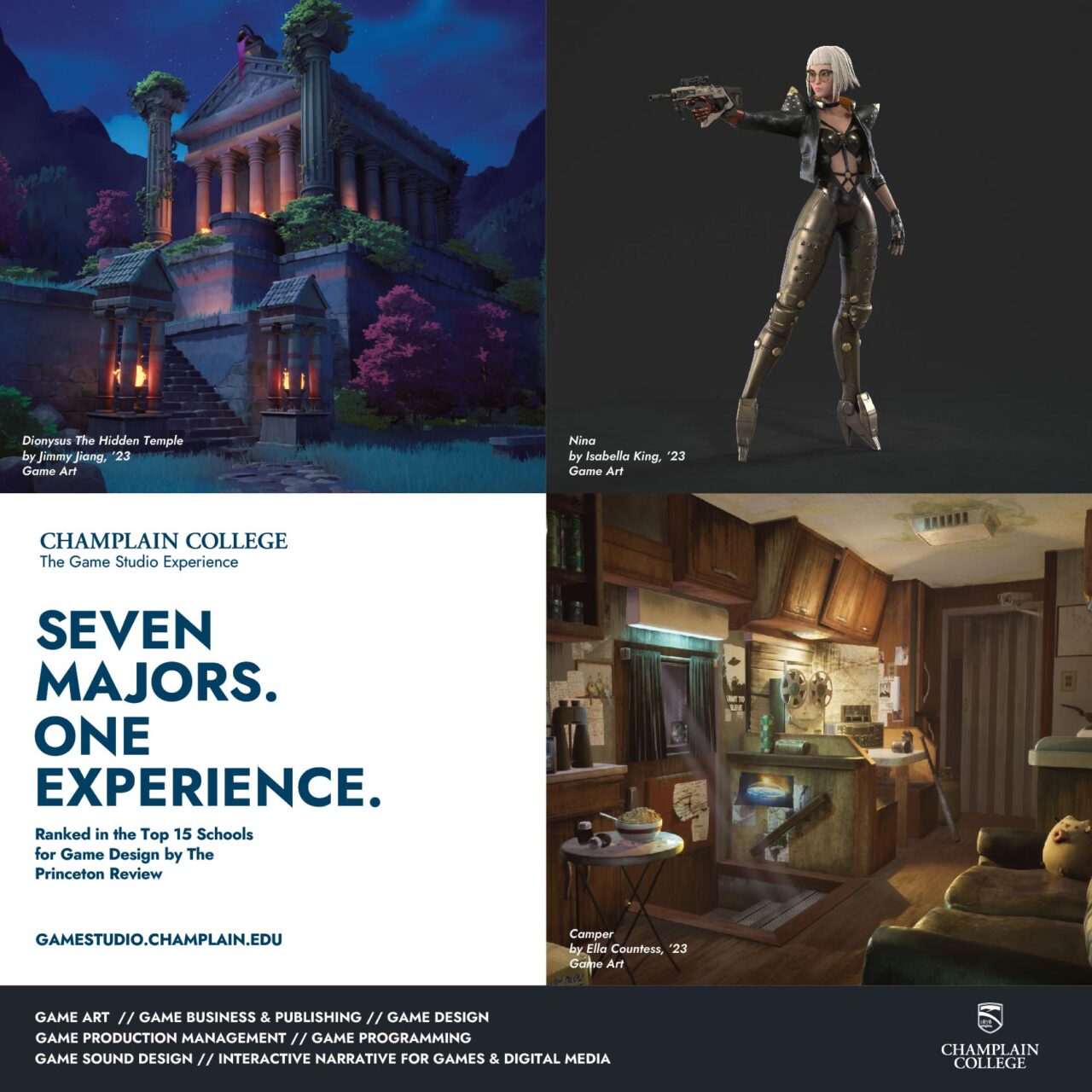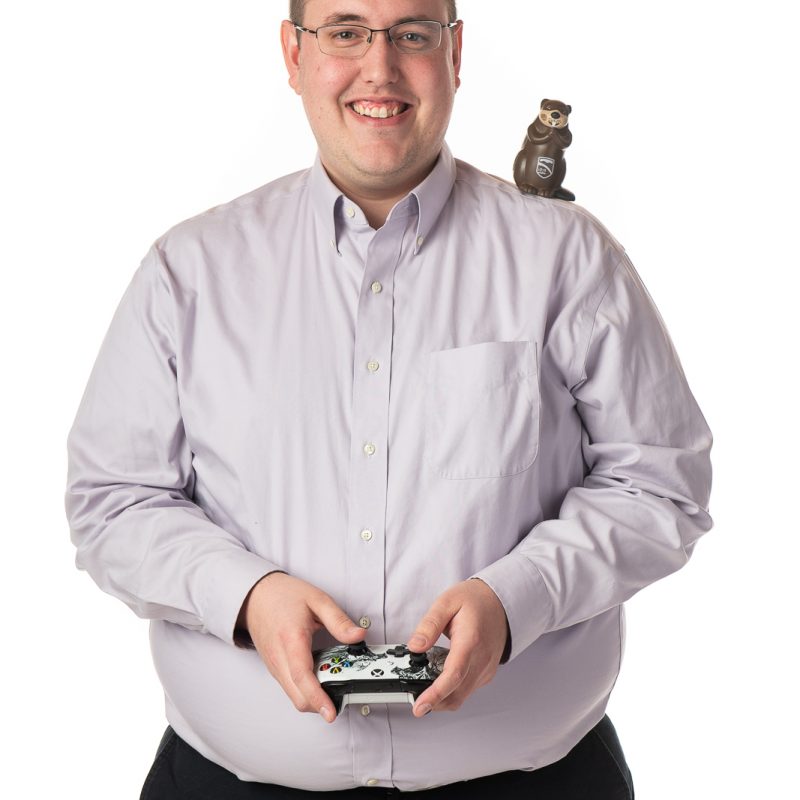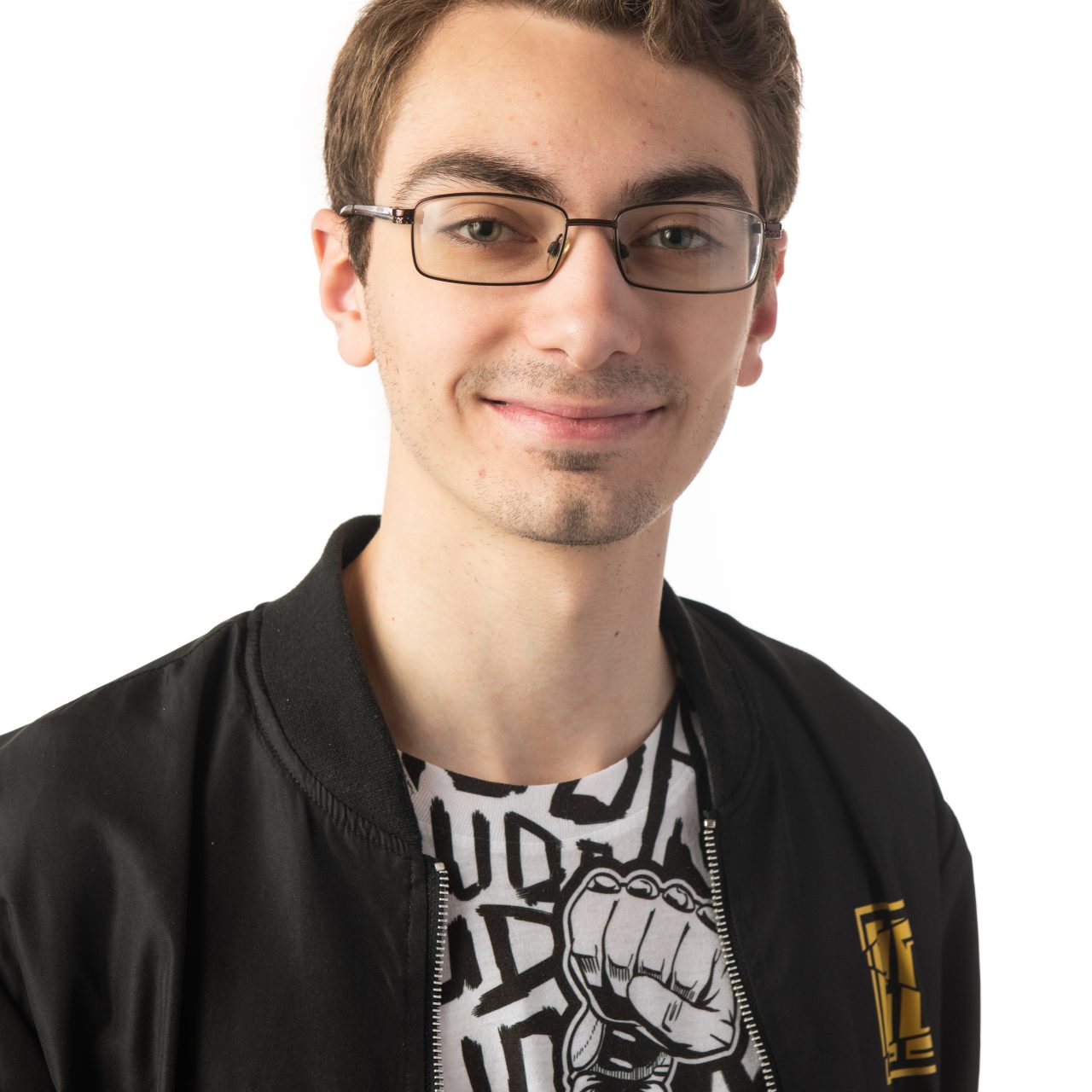
Mark Botaish
| Major | |
|---|---|
| Graduated | 2020 |
| Hometown | Sharon, MA |
How has the Game Studio prepared you for the professional world?
Everyone takes the C++ intro to advanced courses, so you get a really good summary of the language. In order to do well in classes and projects throughout your college career, you have to push yourself and be able to ask questions, pay attention, and learn to work independently as well as in a team. The Game Studio is pretty much on point with what you would experience in the real world.
Can you tell us about the Ubisoft competition in Montreal?
Every year, Ubisoft sponsors a competition with surrounding game schools. They set a theme, and you have 10 weeks to make a game that the audience can interact with. I would say it was one of the most pivotal moments of my college career because we were able to work on such a large team. Usually we are on teams of five, but with eight members we got to make a fully-fledged game to show professionals to judge. It's a signature piece in my portfolio.
So what does a Game portfolio look like?
In your portfolio, you put most of your projects or finals. I have the game we made for the Ubisoft competition, my Capstone, and final projects from upper level courses I took junior and senior year. Recruiters love to see side projects, and that's a big culture at Champlain. You work with your friends and make a good game to throw in your portfolio. It shows recruiters that you're driven, you're active, and you genuinely enjoy making games.
As a game programmer, your portfolio shows off the end product and points out specifically what you did on that project. You might provide a sample of your code and a detailed explanation of how it works. It's more technical than a designer's portfolio, for example.
Alumni in Game Programming Major
Interested in Learning More?
Fill out this form and we’ll send you info about our game majors plus a poster designed by our students!








